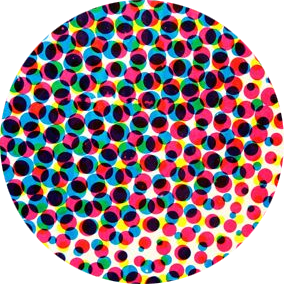The Polymorphic Powers of Ms. Marvel

The polymorphic powers of Ms. Marvel/Kamala Khan are both a fluid and precise metaphor. The character’s 2014 debut by by G. Willow Wilson & Adrian Alphona uses polymorphism to subvert tropes and tell a complex, identifiable story about intersectional identity. 1/12



When the Terrigen Mist activates her powers, Kamala communicates her fondest desire to a vision of her idol, Captain Marvel: “I want to be awesome & butt-kicking & less complicated. I want to be you.” Being less complicated means being white, blonde & stereotypically sexy. 4/12

Through familial, community & religious support, Kamala finds the strength to be herself. Her powers also compel this lesson. When shapeshifted into someone else, Kamala is less powerful. To be a hero, she must accept being “weird” – and having a multitudinous identity. 5/12

In “Ms. Marvel’s America,” scholar Hussein Rashid writes, “As a polymorph… who has the ability to change her physical characteristics… [Kamala’s] very body represents her conception of being ‘American.’” In other words, Kamala’s identity is strongly linked to her powers. 6/12

Whereas racist and sexist tropes & stereotypes simplify identity in order to denigrate groups of people, Kamala’s polymorphic powers play with processes of identity formation. In effect, her powers are self-reflexive – doing identity and commenting on identity. 7/12

Kamala’s powers also comment on superhero comics tropes related to gender. At first, Kamala dreams of wearing Carol Danvers’ “politically incorrect” costume. But she quickly realizes the reality doesn’t match her fantasy; the boots pinch, the leotard gives her a wedgie. 8/12

Alphona expertly sells Kamala’s discomfort with her transformation into Danvers. He depicts Kamala’s mind at war with her body, and his focus on interstitial stages of transformation & elongated body parts evokes both horror and comedy, perfect for teenage mortification. 9/12

Importantly, Kamala specifically realizes Danvers’ black costume doesn’t work *for her.* Kamala – and Wilson – aren’t saying sexy costumes are always “bad.” They are problematic only when they neglect individuality (subjecthood) in favor of a generic male gaze (objecthood). 10/12

Superhero comics are collaborative; one person’s take on a character can be very different from someone else’s. But Kamala’s metaphors are built to survive this challenge. Her powers inherently resist objectification & simplicity, and encourage individuality & complexity. 11/12

The recent Disney+ adaptation modifies Kamala Khan’s powers. It’s beyond the scope of this thread to analyze the nuances of this change. But it’s unsurprising that the change prompted discussion, given the importance of polymorphism in Kamala’s comic book origin. 12/12
